2020 GSCM Conference Speakers Profile
Keynote Speakers Profile (Practitioners)
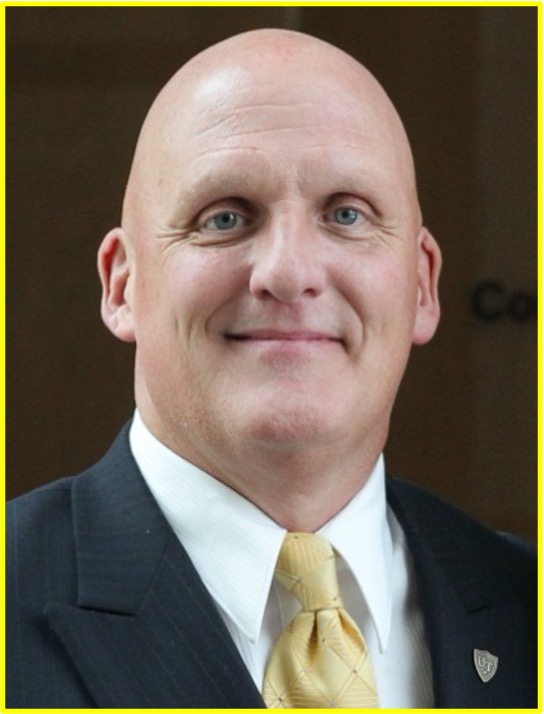 Clinton Oliver Longenecker, is an award-winning educator, one of “America’s leaders in creating high-performance
leaders and organizations,” and is a Distinguished University Professor and the Director
of The Center for Leadership and Organizational Excellence in The College of Business
and Innovation at The University of Toledo. He has been recognized by The Economist as one of the Top Fifteen Business Professors in the World and his teaching, research and consulting interests are in creating high-performance
leadership and great organizations. He has been the recipient of over sixty (60)
outstanding teaching, service and research awards and numerous industry awards including
the Ernst & Young Entrepreneur of the Year, Toastmasters International Leadership Award,
The Jefferson Award for Outstanding Public Service, and numerous “Best Professor” recognitions. In 2017, Clint was recognized as one of the top three University Professors in the USA as a Finalist for Baylor University’s Robert Foster Cherry Award for Great Teaching and as one of the top thirty (30) “transformational
leaders” in America by The John MaxwellHe has published over 200 articles and papers in leading academic and professional
journals and is a frequent media source, and his research has been featured in the
Wall Street Journal, Investor’s Business Daily, MSNBC, NPR, and a wide variety of
media outlets. Clint is also a critically acclaimed professor in The Great Courses Critical Business Skills Series – Organizational Behavior Course (ranked by Newsweek as the #27 Best Audio Book in the U.S.). His newest book, The Successful Career Survival Guide is a chronicle of best practices and key research findings designed to help readers
improve their personal effectiveness and career trajectory. He is also the co-author
of two best-selling leadership books, Getting Results: Five Absolutes for High Performance and Two-Minute Drill: Lessons for Rapid Organizational Improvement from America’s Greatest
Game. Clint is an active management consultant, educator, and executive coach whose clients
include a wide variety of Fortune 500 firms and entrepreneurial organizations including
Harley-Davidson, ConAgra, SSOE, ProMedica Health Systems, Whirlpool, Eaton Corporation,
Cooper Tire, Dana Incorporated, Howard Hughes Medical Institute, and O-I Inc. among
others. He holds a B.B.A. in marketing, an M.B.A. in management, both from The University
of Toledo, and a Ph.D. in management from The Pennsylvania State University.
Clinton Oliver Longenecker, is an award-winning educator, one of “America’s leaders in creating high-performance
leaders and organizations,” and is a Distinguished University Professor and the Director
of The Center for Leadership and Organizational Excellence in The College of Business
and Innovation at The University of Toledo. He has been recognized by The Economist as one of the Top Fifteen Business Professors in the World and his teaching, research and consulting interests are in creating high-performance
leadership and great organizations. He has been the recipient of over sixty (60)
outstanding teaching, service and research awards and numerous industry awards including
the Ernst & Young Entrepreneur of the Year, Toastmasters International Leadership Award,
The Jefferson Award for Outstanding Public Service, and numerous “Best Professor” recognitions. In 2017, Clint was recognized as one of the top three University Professors in the USA as a Finalist for Baylor University’s Robert Foster Cherry Award for Great Teaching and as one of the top thirty (30) “transformational
leaders” in America by The John MaxwellHe has published over 200 articles and papers in leading academic and professional
journals and is a frequent media source, and his research has been featured in the
Wall Street Journal, Investor’s Business Daily, MSNBC, NPR, and a wide variety of
media outlets. Clint is also a critically acclaimed professor in The Great Courses Critical Business Skills Series – Organizational Behavior Course (ranked by Newsweek as the #27 Best Audio Book in the U.S.). His newest book, The Successful Career Survival Guide is a chronicle of best practices and key research findings designed to help readers
improve their personal effectiveness and career trajectory. He is also the co-author
of two best-selling leadership books, Getting Results: Five Absolutes for High Performance and Two-Minute Drill: Lessons for Rapid Organizational Improvement from America’s Greatest
Game. Clint is an active management consultant, educator, and executive coach whose clients
include a wide variety of Fortune 500 firms and entrepreneurial organizations including
Harley-Davidson, ConAgra, SSOE, ProMedica Health Systems, Whirlpool, Eaton Corporation,
Cooper Tire, Dana Incorporated, Howard Hughes Medical Institute, and O-I Inc. among
others. He holds a B.B.A. in marketing, an M.B.A. in management, both from The University
of Toledo, and a Ph.D. in management from The Pennsylvania State University.
Website: https://www.utoledo.edu/business/faculty/management/ClintonLongenecker.html
TITLE: LEADING DURING OUR VIRAL TRIAL: IMPERATIVES FOR SENIOR LEADERS
The coronavirus has turned both the global economy and modern workplace upside down. Senior leaders in every industry sector of the global marketplace are grappling to lead their organizations forward during these highly unpredictable, turbulent, and dynamic times. In this presentation, we will explore a number of key imperatives for effective leadership during our “viral trial” based on the input of our sample of CEOs and senior leaders from a large cross-section of US organizations. We will provide business practitioners with specific leadership practices to help them effectively deal with the challenges that they are facing based on the lessons and best practices of others. In addition, will provide researchers with a host of critical topics and practices that need to be more fully explored during this age of “big organizational learning.” Given the rate and pace of organizational change, leaders and researchers alike need to get out in front of the organizational learning curve if they are to remain informed, effective, and relevant.
*****
 Bill McCreary is Vice President Chief Information Officer & Chief Technology Officer on July 1,
2015. He is responsible for all information technology covering academic technology,
3D/virtual reality technologies, the Center for Creative Instruction, healthcare technology
systems and administrative systems across the University enterprise, which come together
in the Division of Technology & Advanced Systems. He holds a BS in chemistry with
a minor in engineering/math, and master’s degrees in econometrics, computer science/math
and business finance, a law degree, and a PhD focused on artificial intelligence and
evolutionary simulation in virtual reality.
Bill McCreary is Vice President Chief Information Officer & Chief Technology Officer on July 1,
2015. He is responsible for all information technology covering academic technology,
3D/virtual reality technologies, the Center for Creative Instruction, healthcare technology
systems and administrative systems across the University enterprise, which come together
in the Division of Technology & Advanced Systems. He holds a BS in chemistry with
a minor in engineering/math, and master’s degrees in econometrics, computer science/math
and business finance, a law degree, and a PhD focused on artificial intelligence and
evolutionary simulation in virtual reality.
He has been an active member of several senior level advisory boards, including the
Microsoft Higher Ed Advisory Board, the Ellucian CEO Advisory Board (Banner), Cisco
CIO Advisory Board and the Gartner CIO Committees for Healthcare and Higher Education. He
also serves as the Chair for the Educause Committee on Extended Reality (XR), which
is a large workgroup covering the full range of 3D/virtual reality technologies in
higher education. Bill is the Chair of the Ohio Inter-University Council (IUC) of
Chief Information Officers, which creates cross Ohio based university collaborations
to drive technology and assist in lowering costs for all the members. Bill continues
to be a speaker at major technology conferences on artificial intelligence, cybersecurity,
3D/virtual reality, simulation gaming and has been featured in a number of national
publications. Additionally, he has been a principal investigator on a number of the
UToledo federal research projects, including the National Science Foundation, Dept
of Energy and National Labs.
TITLE: Challenges in Balancing Cyber Risks with Expectations of the Organization’s Stakeholders in Post COVID-19 world
This presentation aims to discuss challenges related to increasing cyber risks in multiple fronts and at the same time mounting expectations of the organization’s stakeholders (e.g., business owners, employees, customers, suppliers and governments). Particular focus is in the context of post COVID-19 world. Discussion includes business models and risk management and the roles of emerging technologies and management decision making on key investment decisions and collaborative actions in balancing multiple expectations.
*****
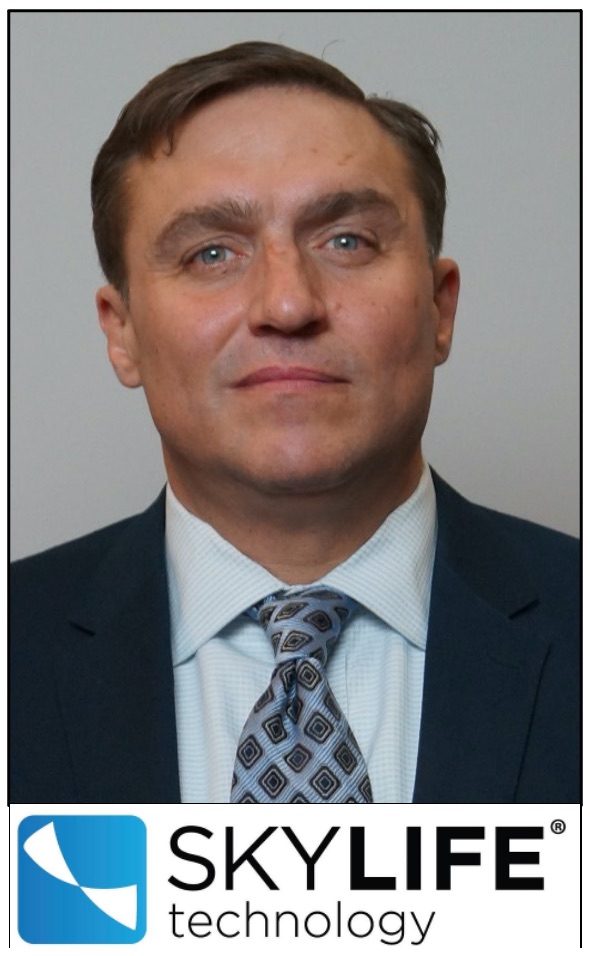 Jeff Potter is founder and CEO of Potter, an innovative prototyping and advanced machinery company
that specializes in new, disruptive technologies. After his service in the United
States Marine Corp, Jeff, along with his father, built Potter; he has been developing
new technologies ever since. Jeff has over 30 years of experience in the world of
engineering, machinery, prototyping, and logistics management, and has been the lead
facilitator or inventor in over 200 US and foreign industrial utility patents. Taking
his passion for creative technology and applying it to the world of humanitarian aid,
he founded SkyLIFE in 2010. SkyLIFE is an aerial delivery company that provides live-saving
aid in the immediate aftermath of a crisis. His passion for SkyLIFE has furthered
him towards additional humanitarian innovations that seek to radically improve traditional
or inadequate systems in the areas of disaster relief, global education access, and
sustainable environmental solutions.
Jeff Potter is founder and CEO of Potter, an innovative prototyping and advanced machinery company
that specializes in new, disruptive technologies. After his service in the United
States Marine Corp, Jeff, along with his father, built Potter; he has been developing
new technologies ever since. Jeff has over 30 years of experience in the world of
engineering, machinery, prototyping, and logistics management, and has been the lead
facilitator or inventor in over 200 US and foreign industrial utility patents. Taking
his passion for creative technology and applying it to the world of humanitarian aid,
he founded SkyLIFE in 2010. SkyLIFE is an aerial delivery company that provides live-saving
aid in the immediate aftermath of a crisis. His passion for SkyLIFE has furthered
him towards additional humanitarian innovations that seek to radically improve traditional
or inadequate systems in the areas of disaster relief, global education access, and
sustainable environmental solutions.
TITLE: Popularizing New Methods and Technology for Improved Humanitarian Aid Delivery
This discussion will center around how logistics and creative engineering play an essential role in the success of the SkyLIFE airdrop systems. Jeff will discuss the stubborn challenges that are typical along the various stages of the humanitarian-aid distribution chain and how SkyLIFE was created as a solution to these challenges. He will explore why and how SkyLIFE airdrop systems can be used as a viable and necessary answer to the longstanding difficulties surrounding traditional disaster response strategies and logistical modalities. Part of the compelling promise of SkyLIFE is that humanitarian relief efforts could be more successful, and loss of life and suffering caused by delayed relief efforts can be avoided. How is it that SkyLIFE has become the largest parachute delivery system in the world, dropping over 100k SkyLIFE parachutes, and what are the implications of this success inside the humanitarian sector? This discussion engages with these questions, focusing on the unique, logistical challenges specific to our work, the failings and trials of traditional disaster relief efforts, and the future promise of airdrop technology in a variety of applications throughout the humanitarian sector. This will focus on the entire supply chain from manufacturing through to warehousing then to distribution further on to operations and sustainability strategies being implemented.
SkyLIFE was founded after the 2010 Haitian earthquake, when well-intentioned relief responses failed, leaving thousands stranded without the life-saving aid they needed. SkyLIFE products are specially designed to improve traditional and often faulty relief efforts through innovative airdrop systems. SkyLIFE solves the problem of “the last mile,” the final and most precarious stage of humanitarian relief distribution, by airdropping crucial aid quickly and directly to those who need it. SkyLIFE works closely with international humanitarian aid agencies, first responders, and governments to revolutionize disaster response and humanitarian aid delivery. Industry SkyLIFE and its licensees currently operate in countries across Africa and Asia. SkyLIFE is headquartered in Toledo, Ohio, and houses offices in Washington D.C., Kenya, and Singapore. SkyLIFE has worked with or currently works with WFP, USAID, ICIEPE, Royal Thai Armed Forces, USSOCOM, and other organizations to improve humanitarian-aid logistics and delivery throughout regions worldwide.
*****
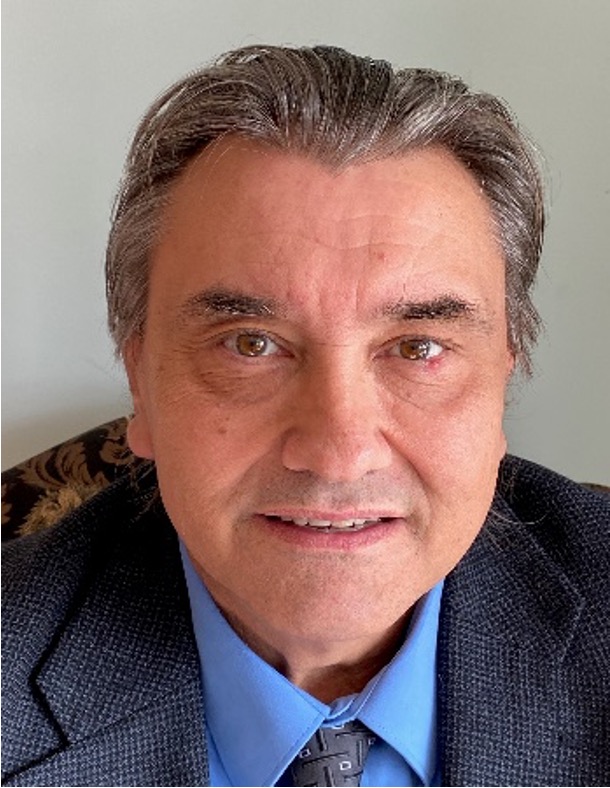 Francis T. Wszelaki, formally the Past President & CEO of Columbia Power Corporation and currently the
University of Toledo Business college's Executive in Residence; Frank is known as
a top-performing and highly transformative energy executive, utility manager and university
educator, having exhibited leadership expertise in operations, continuous improvement,
organizational development, project management and supply chain & logistics. Mr. Wszelaki
has served the Energy sector for 30 plus years where his expertise reached across
all aspects of that spectrum, including utility, oil & gas, and petrochemical sectors
as well as the customers they serve. During these years of service, Mr. Wszelaki has
been responsible for constructing, upgrading, and restoring Billions of dollars in
utility assets. Most notably the Waneta Construction, a $1.0 Billion Hydro Dam new
construction, being On Time and On Budget with no major Safety or Environmental incidences. In
concert with his utility accomplishments he is most notable as host and speaker at
Energy Conferences; specifically, as a key-note speaker for the World Energy Council.
Mr. Wszelaki holds an EMBA and Electrical Engineering degree(s) from the University
of Toledo, a Lean Six Sigma Black Belt DTE Energy – GE, a PMI Certification from the
International School of Learning, a Nuclear Certification from Fermi II - Technical
Staff & Managers, an Associates of Sciences Degree from Monroe County Community College
and certifications in Engineering from the University of Michigan.
Francis T. Wszelaki, formally the Past President & CEO of Columbia Power Corporation and currently the
University of Toledo Business college's Executive in Residence; Frank is known as
a top-performing and highly transformative energy executive, utility manager and university
educator, having exhibited leadership expertise in operations, continuous improvement,
organizational development, project management and supply chain & logistics. Mr. Wszelaki
has served the Energy sector for 30 plus years where his expertise reached across
all aspects of that spectrum, including utility, oil & gas, and petrochemical sectors
as well as the customers they serve. During these years of service, Mr. Wszelaki has
been responsible for constructing, upgrading, and restoring Billions of dollars in
utility assets. Most notably the Waneta Construction, a $1.0 Billion Hydro Dam new
construction, being On Time and On Budget with no major Safety or Environmental incidences. In
concert with his utility accomplishments he is most notable as host and speaker at
Energy Conferences; specifically, as a key-note speaker for the World Energy Council.
Mr. Wszelaki holds an EMBA and Electrical Engineering degree(s) from the University
of Toledo, a Lean Six Sigma Black Belt DTE Energy – GE, a PMI Certification from the
International School of Learning, a Nuclear Certification from Fermi II - Technical
Staff & Managers, an Associates of Sciences Degree from Monroe County Community College
and certifications in Engineering from the University of Michigan.
Title: Energy Sector
The future of supply chain: Focusing on the Utility Sector and most recent dealing
with the COVID 19 Pandemic.
In this presentation, I will share my recent experiences and the input received from utilities across the United States and Canada regarding the new normal affecting supply chain and operations management. My talk will include how utilities are strategically transforming and tactically approaching all aspects of their supply chains to serve their customers. I will couple this with my past experiences as an outage/project manager, as well as my roles as a director and chief operating officer describing areas for improving supply chain and operations management. My talk from the COVID 19 pandemic perspective will share my utility conversations where they provided their insights as the voice of the customer. My paper once issued will share best practices, lessons learned and my analysis to assist the utilities, their OEMs, the engineering firms, services, and parts suppliers they interact with. Example topics in the case study’s final report will include: operations management best practices, work control & planning approaches, inventory optimization versus critical spare requirements used, risk management & mitigation techniques, global supplier integration to OEM delivery learning, scheduling integration to cost controls, construction team/outage group effectiveness measures and engineering design to OEM and vendor best practices.
*****
 D. Paul Zito has over 20 years of international business development experience and has worked
with companies around the world to help grow their overseas markets. For ten years
he was an international sales executive and for 13 years Paul served as Managing Director
of the State of Ohio European Office (Brussels, Belgium), one of the overseas offices
of the Ohio Department of Development (ODOD). He generated tens of millions of dollars
per year of European investment into Ohio and exports from Ohio working with companies
such as BMW, Siemens, Reed-Elsevier, CAP Gemini, ThyssenKrupp, Groupe Danone, Kuka,
Siemens, Daimler AG, Glud & Marstrand, ArcelorMittal and many small and medium-sized
companies. Paul currently works to promote the Toledo region and Northwest Ohio as
a location for overseas businesses and to assist local companies with their international
strategies. He recently served as Chair of the International Advisory Committee of
the International Economic Development Council (IEDC) and previously served as Chairman
of the Council of American States in Europe (CASE). Paul holds an MBA in International
Management degree from the Thunderbird School of Global Management and a Bachelor
of Arts degree from Ohio University. He speaks German and French fluently.
D. Paul Zito has over 20 years of international business development experience and has worked
with companies around the world to help grow their overseas markets. For ten years
he was an international sales executive and for 13 years Paul served as Managing Director
of the State of Ohio European Office (Brussels, Belgium), one of the overseas offices
of the Ohio Department of Development (ODOD). He generated tens of millions of dollars
per year of European investment into Ohio and exports from Ohio working with companies
such as BMW, Siemens, Reed-Elsevier, CAP Gemini, ThyssenKrupp, Groupe Danone, Kuka,
Siemens, Daimler AG, Glud & Marstrand, ArcelorMittal and many small and medium-sized
companies. Paul currently works to promote the Toledo region and Northwest Ohio as
a location for overseas businesses and to assist local companies with their international
strategies. He recently served as Chair of the International Advisory Committee of
the International Economic Development Council (IEDC) and previously served as Chairman
of the Council of American States in Europe (CASE). Paul holds an MBA in International
Management degree from the Thunderbird School of Global Management and a Bachelor
of Arts degree from Ohio University. He speaks German and French fluently.
Title: COVID 19, Supply Chain Disruption and their Effects on Foreign Direct Investment (FDI) and Reshoring.
In the past, natural and man-made disasters such as SARS in 2002-2003, the Icelandic volcano eruption in 2010 and Japan’s earthquake and tsunami in 2011 have disrupted global supply chains and the shocks were felt around the world. Analysts and foreign direct investment (FDI) consultants forecast that FDI will decline into the USA, Europe, Asia and the rest of the world for 2020 due to the COVID-19 pandemic and the resultant cancellations of FDI projects have occurred though may have been placed on pause. Though declines are projected for FDI in sectors such as Tourism, Entertainment, Retail and Aviation, growth is anticipated in areas such as Renewable Energy, Mobility, R&D and Food & Agriculture. The long-term outlook for overall FDI in the USA and around the world is positive since companies want to be more “local for local” in all industrial and commercial sectors. Given that the USA is the largest developed market in the world, it stands to see positive FDI results in the long term. Part of the economic development strategies of any community should include reshoring. However, reshoring is not the Holy Grail that will bring massive amounts of manufacturing back to the US merely by fiat. Costs can be prohibitive and may not make sense based on the output of operations in low-cost countries since they may exist mostly to service the markets in and around those operations. However, FDI and reshoring opportunities abound in the USA and around the world.
The Regional Growth Partnership (RGP) is a privately funded economic development agency covering the Toledo area and the 17 northwest counties of Ohio. The RGP is one of six regional network partners of JobsOhio which is the privatized economic development entity for the State of Ohio. As a 100 percent privately led organization, the RGP focuses on meeting the site selection needs of corporate clients in a confidential, innovative, and time-sensitive manner. Serving as a true regional and private group, the RGP is not bound by political jurisdictions, allowing us to act in the best interest of businesses. We help overseas companies to find a location for their US operations; assist with financing options from the State of Ohio as well as local governments and other public & private entities; provide introductions to qualified service providers (banks, law firms, accounting firms, logistics companies…); and in many cases can help overseas companies with their marketing plans for the US. The RGP’s business development efforts are focused on five cluster industries: Energy, Logistics & Transportation, Automotive, Food Processing, Advanced Manufacturing.
*****
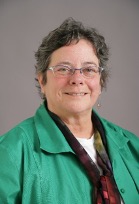 Dr. Margaret M. Hopkins is a Professor of Management in the College of Business and Innovation at the University
of Toledo, teaching leadership and management at the Executive MBA, MBA, and upper-undergraduate
levels. Her research interests are in the field of leadership, including leadership
development, gender and leadership, executive coaching, and emotional intelligence. She
has published extensively in professional journals and edited volumes. Prior to joining
academia, she held a number of managerial and leadership roles in the private and
public sectors. She earned her undergraduate degree from Boston College, and her
masters’ and doctoral degrees in Organizational Behavior from Case Western Reserve
University.
Dr. Margaret M. Hopkins is a Professor of Management in the College of Business and Innovation at the University
of Toledo, teaching leadership and management at the Executive MBA, MBA, and upper-undergraduate
levels. Her research interests are in the field of leadership, including leadership
development, gender and leadership, executive coaching, and emotional intelligence. She
has published extensively in professional journals and edited volumes. Prior to joining
academia, she held a number of managerial and leadership roles in the private and
public sectors. She earned her undergraduate degree from Boston College, and her
masters’ and doctoral degrees in Organizational Behavior from Case Western Reserve
University.
TITLE: COVID-19: BEST PRACTICES FOR LEADING IN A CRISIS
The global business market was already highly volatile before the pandemic. Now more than ever, leaders face enormous challenges. As the world grapples with the fear and uncertainty associated with the COVID-19 global pandemic, it also offers a rare opportunity for business leaders to rise to the challenge. Organizations need strong and inspiring leadership to help teams navigate these turbulent and unpredictable times. Leading also involves guiding people to the best possible eventual outcome over this arc of time and into the future.
This proposed session will provide current research on the best practices for leading through a crisis. A leadership framework along with the essential skills for leading in a crisis will be presented. Finally, strategies for leaders to develop their own resilience will be identified.
*****
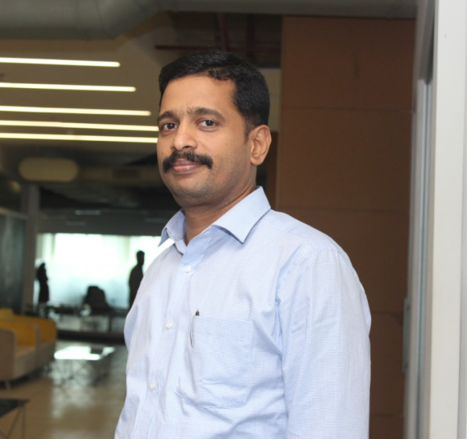 Visweswaran Sundararaman is a Sr. Consultant with Vector Consulting Group. A management consultant by profession
with business transformation as a passion, he is confident that every for-profit organization
has the inherent potential to transform its business radically!
The ability to transform any business emerges from the fundamental beliefs of;
1. Challenging the status quo
2. A holistic view is different from a silo view
3. Logical thinking and clinical approach for any challenges
Vector Consulting Group pioneers in business transformation (which has embedded with
above beliefs at its core) using Theory Of Constraints (TOC) philosophy.
Having a strong academic background [BE, MBA and MS (USA)] and versatile and rich
work experience of 23+ years across various sectors including solar cell and module
manufacturing, fibre to fabric - textile manufacturing, integrated steel manufacturing,
auto and auto components, consumer goods and retail, fabrication, and equipment manufacturing
strengthens his professional abilities.
With a natural flavor of good people management skills and excellent communication
skills, his uniqueness is the exceptional blend of intellectual and inter-personal
abilities, to coach and facilitate the clientele (across all levels of management)
in their successful business transformation journeys.
Some of the results include...
Improved due date performance (on time in full – OTIF) to >90% , Increased production
output by >70%, Increased bottom line > 20% , Enhanced channel network > 100% , Improved
availability at the Points of Sale to >95% , Reduced working capital by > 40% , Improved
gross margins by > 10% , Reduced lead time by > 50%, Doubled the profits in 2~3 years...etc
Visweswaran Sundararaman is a Sr. Consultant with Vector Consulting Group. A management consultant by profession
with business transformation as a passion, he is confident that every for-profit organization
has the inherent potential to transform its business radically!
The ability to transform any business emerges from the fundamental beliefs of;
1. Challenging the status quo
2. A holistic view is different from a silo view
3. Logical thinking and clinical approach for any challenges
Vector Consulting Group pioneers in business transformation (which has embedded with
above beliefs at its core) using Theory Of Constraints (TOC) philosophy.
Having a strong academic background [BE, MBA and MS (USA)] and versatile and rich
work experience of 23+ years across various sectors including solar cell and module
manufacturing, fibre to fabric - textile manufacturing, integrated steel manufacturing,
auto and auto components, consumer goods and retail, fabrication, and equipment manufacturing
strengthens his professional abilities.
With a natural flavor of good people management skills and excellent communication
skills, his uniqueness is the exceptional blend of intellectual and inter-personal
abilities, to coach and facilitate the clientele (across all levels of management)
in their successful business transformation journeys.
Some of the results include...
Improved due date performance (on time in full – OTIF) to >90% , Increased production
output by >70%, Increased bottom line > 20% , Enhanced channel network > 100% , Improved
availability at the Points of Sale to >95% , Reduced working capital by > 40% , Improved
gross margins by > 10% , Reduced lead time by > 50%, Doubled the profits in 2~3 years...etc
TITLE: How to build a world class distribution highway!
My speech would include, how a company, part of US $ 6.0 billion corporate group, based out of India with a diversity in small appliances, lighting, luminaires, engineering, and infrastructure projects. When they were operating in pre – TOC environment, the feeling was that if the company must have growth, this company had to keep increasing its product variants in the market and aggressively pursue ‘push’ sales. So, the company had an ever-expanding product portfolio. The intensive distribution network which included distributors, authorized dealers, and wholesalers functioned mostly as billing points i.e. the company would sell, at variable discounts based on quantity picked up by them, with the expectation that these would reach retail counters across the nation. However, this mode of business created several challenges in the market and in the supply chain including Poor ROI for distributors, Price undercutting and cross market infiltration, Poor product availability in the market in spite of very high level of inventory in the channel, severe month end skew in sales and unhappy vendors. Since the whole consumer durable industry followed the same or similar operating model, all these were chronic but common industry problems.
I am going to touch upon, the way this company solved industry chronic problem in a most count intuitive way and created a distribution highway that reaches out to 600 districts of India, through 450 distributors, and more than 200,000 retailers. The company also achieved excellent improvements in its financial and operational performance. Sales is growing at a rate of 25% (industry is at 10%). Market share, profits and channel partner financials have seen phenomenal improvements too.
*****


